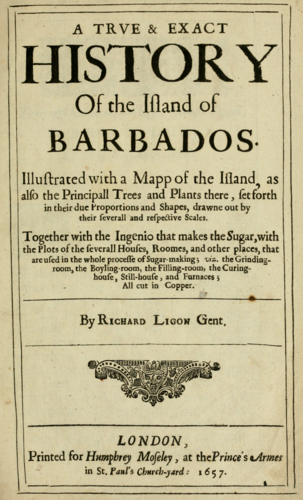Where are Caribbean Slave Narratives?
The early Caribbean slave narratives can be found in almost any archive that collects material from the Caribbean, early Americas, and the Transatlantic trade system. This includes nation and university affiliated libraries, as well as independent archives. This is especially true for the embedded slave narratives, which can be found in some of the most circulated texts of the time.
Notably, there is Yale University's Beinecke Rare Book & Manuscript Library, Brown University's John Carter Brown Library, and The British Library in the United Kingdom. These libraries have partnered with the ECDA to make the material they house more widely available by offering us access to digitized versions of their material which we then pass on to our users.
There are also other digital archives, such as HathiTrust and DLoC (Digital Library of the Caribbean), that like the ECDA, provide digitized versions of archival material from the Caribbean. The ECDA also has relationships with these archives, and they have generously provided us with material that appears in both of our archives.
It is worth noting that much of the archive material is not widely accessible, even in a digital format, especially to the people of the Caribbean. While there are some archives throughout the Caribbean and Latin America that house these materials, the larger, better funded archives tend to be in the United States and in European countries such as England, Spain, and Amsterdam. Obviously, this has created an issue of access to materials; this lack access very much keeps the history out of the hands and minds of the people of the Caribbean.

Title page of Richard Ligon's A true & exact history of the island of Barbados, 1657.
The issue of access is certainly on our minds, and as we grow as a platform we hope to come up with ways to increase accessibility to our archive. Not only do we want to make it easier to view and download many of our materials, but we also want to help curate and guide our users through understanding the material without the colonial lens over the texts. While we are not able to work as closely as the dedicated archivists in the physical archives, we can certainly provide a wealth of help and information as one explores Caribbean history. In order to help we have created scholarly introductions, exhibits, and collected teaching material to make learning the history of the Caribbean easier and less overwhelming (there is A LOT of material out there!). We are also happy to help others with their scholarship, check out our contact us page for information on how to get in touch!
Doing this sort of work aligns with our mission at the ECDA. We seek to decolonize the ways in which Caribbean history is taught, and one of the first steps is to help bridge the accessibility gap of the archive. To learn more about goals at the ECDA, check out our What We Are Doing page.
